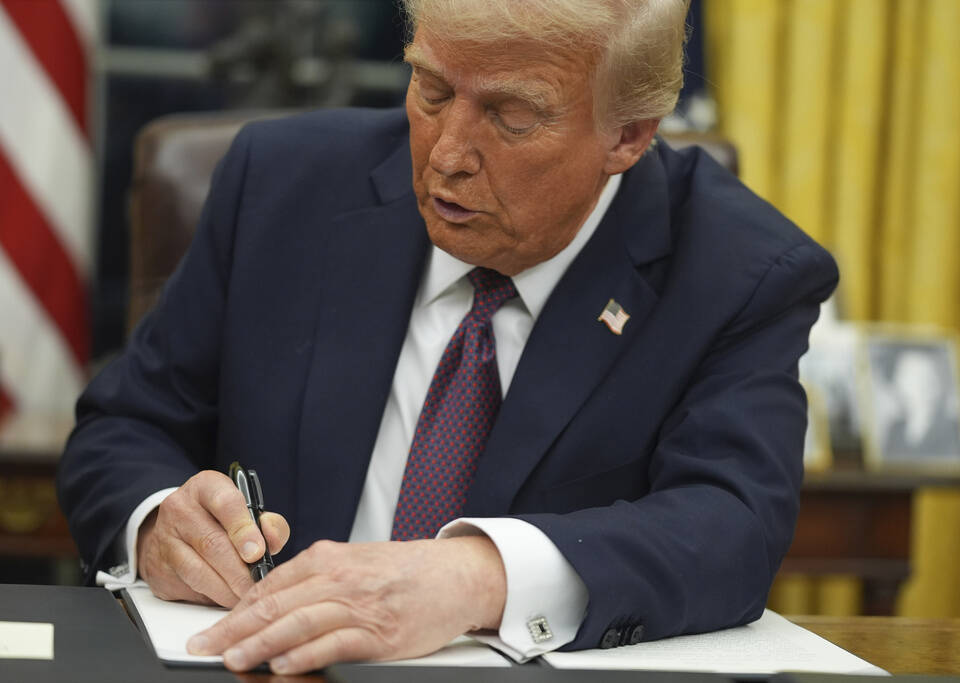If President Donald Trump has his way, the next U.S. census will break with precedent in a major way.
The commander in chief called for “a new and highly accurate” census that excludes illegal immigrants in a Truth Social post on Thursday. The post immediately sent his detractors into a tailspin, while calmer minds considered the ramifications from a legal and political perspective.
On Thursday’s show, Megyn was joined by Tom Bevan and Andrew Walworth of RealClearPolitics to discuss President Trump’s post and what it could mean for the country electorally.
Trump’s Proposal
Early Thursday, the president took to Truth Social to share his plan for the decennial counting event. “I have instructed our Department of Commerce to immediately begin work on a new and highly accurate CENSUS based on modern day facts and figures and, importantly, using the results and information gained from the Presidential Election of 2024,” he wrote.
It was what came next that made headlines. “People who are in our Country illegally WILL NOT BE COUNTED IN THE CENSUS,” he added. “Thank you for your attention to this matter!”
As outlined in the U.S. Constitution, a national census is to be conducted every 10 years. The last was completed in 2020, and it is unclear if Trump is calling for changes to the current plan for the 2030 census or for the start of a new one altogether.
The Constitution states that the census data will be used to determine congressional representation. The 14th Amendment further clarified “representatives shall be apportioned among the several States according to their respective numbers, counting the whole number of persons in each State, excluding Indians not taxed.”
According to the United States Census Bureau website, the census was “designed to count every resident in the United States,” which includes “all people (citizens and noncitizens) who are living in the United States at the time of the census.”
But many have argued, including RealClearInvestigations’ Benjamin Weingarten, that the founders could not have foreseen tens of millions of migrants residing in the county illegally.
The Political Ramificiations
In an article published after the Truth Social post on Thursday, Weingarten noted that President Trump tried to challenge the practice of counting illegal immigrants during his first term, but the Biden administration overturned the policy before it was implemented. The president appears to have more support this time around, however, thanks to “red state attorneys general and Republican legislators,” Weingarten wrote.
Even so, Weingarten said the “political implications” cannot be ignored. “It could have significant political implications because the census count is used to apportion House seats, determine the number of votes each state gets in the Electoral College for selecting the president, and drive the flow of trillions of dollars in government funds,” he noted.
What makes the politics of it so interesting, Walworth said, is that excluding illegal immigrants would not uniformly benefit one side of the aisle. “California and Texas, I think, would both lose seats. Wisconsin and a bunch of other states would gain seats, so it would change the electoral composition and could change control of the House,” he explained. “And we’re seeing that right now with all this sort of… redistricting argument that’s going on in Texas and other places… This is all part of that same argument.”
The Legal Ramifications
Beyond the politics of it, Megyn said there is no doubt Trump’s proposal would face legal challenges. “The Constitution seems to read that… you’re supposed to just count all persons in the United States… [But] I don’t know that the founders were counting on the fact that there would be 15 or 20 million or more people here illegally,” she explained. “That’s the argument that the Trump administration will make… [but it] is going to be a legal battle in the same way it’s a legal battle right now over… birthright citizenship.”
Bevan agreed. “I think Trump makes a good point… in a very Trump-ian way, which is going to outrage the liberals who say he is breaking all these norms and wants to rig the system,” he said. “But I don’t know where this goes legally.”
“I think it will absolutely be challenged in court – there’s no question about that,” Bevan added. “And it might go all the way to the Supreme Court because I don’t think Democrats want to partake in anything that would discount the counting of folks who are here illegally.”
You can check out Megyn’s full interview with Bevan and Walworth by tuning in to episode 1,124 on YouTube, Apple Podcasts, or wherever you like to listen. And don’t forget that you can catch The Megyn Kelly Show live on SiriusXM’s Triumph (channel 111) weekdays from 12pm to 2pm ET.


